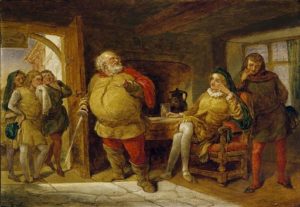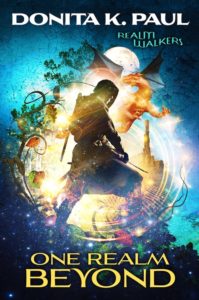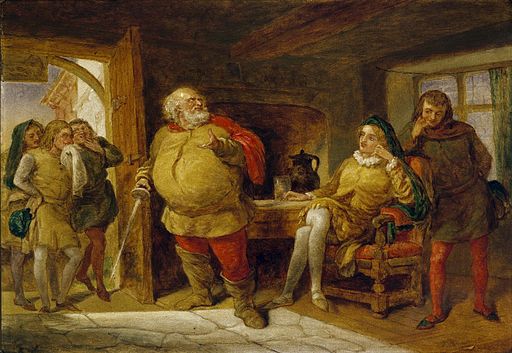Great Secondary Characters
 I remember studying various Shakespearean plays when I was in school. A notable character named Falstaff (Sir John Falstaff, “one of the most famous comic characters in all English literature,” according to Encyclopedia Britannica) appeared in four of those illustrious dramas, albeit not as the protagonist in any of them. The only knock on Falstaff was that he was such a great character, so larger than life, that he stole the scenes in which he appeared.
I remember studying various Shakespearean plays when I was in school. A notable character named Falstaff (Sir John Falstaff, “one of the most famous comic characters in all English literature,” according to Encyclopedia Britannica) appeared in four of those illustrious dramas, albeit not as the protagonist in any of them. The only knock on Falstaff was that he was such a great character, so larger than life, that he stole the scenes in which he appeared.
Great secondary characters are like that. The story is not about them really, but they add so much, they make the story so much richer, that they become as memorable as the protagonist. Recently my thoughts have gone to secondary characters in speculative fiction. Are there any truly outstanding ones?
At once I thought of books by J. R. R. Tolkien and C. S. Lewis, the giants of fantasy, who in so many ways have shown the way for all speculative writers. In The Lord Of The Rings trilogy Gandalf comes to mind as a memorable secondary character. But so does Golum and so does Sam Gamgee.
Aslan in Lewis’s Narnia series is also a memorable second. Of course an argument can be made that Aslan is actually the protagonist because he is the unifying factor in all seven books; in essence, the stories are all his stories. But none of them is actually about him, the way we usually think of a story being about a protagonist. So I suppose that example is somewhat ambiguous.
But what about recent speculative fiction? More specifically, what about recent Christian speculative fiction—are there any memorable secondary characters? Tat their heart, these are characters so unique, so well drawn, they can be scene stealers, or nearly so.
A handful came to mind—and primarily because I read more fantasy than science fiction, these examples are mostly from fantasy.
Perhaps the most notable to me is a recurring character in Anne Elisabeth Stengl’s Tales Of Goldstone Wood series. Anyone who’s read the books probably knows to whom I refer—the shape-shifting faery Eanrin, sometime cat, sometime man, always faery. In truth, his role in a number of the books is critical. While adding some humor from time to time, a la Falstaff, Eanrin definitely contributes more to the stories than comic relief.
In Donita Paul’s first series, the DragonKeeper Chronicles, several characters stepped forward as memorable seconds. First came Wizard Fenworth, with bog creatures nesting in his beard and his habit of becoming treelike to the point that it’s hard to tell him apart from an actual tree.
Another is Rigador. This last (or so we thought) of the meech dragons is fearsome, precocious, elegant, and strong. He commands the page as much as any room he might walk into.
 In Ms. Paul’s latest series The Realm Walkers, another dragon takes the key role as significant second. Bridger, one of the intelligent mor dragons who become constants with the Realm Walkers, wants to attach to Cantor, the protagonist. He fills the bill when it comes to humor because his bumbling ineptitude can be comical, but he nevertheless comes through when it counts most.
In Ms. Paul’s latest series The Realm Walkers, another dragon takes the key role as significant second. Bridger, one of the intelligent mor dragons who become constants with the Realm Walkers, wants to attach to Cantor, the protagonist. He fills the bill when it comes to humor because his bumbling ineptitude can be comical, but he nevertheless comes through when it counts most.
Bryan Davis created a memorable secondary character in his first series, Raising Dragons. Billy’s friend Walter is funny, forthright, and sometimes clueless. But he was such a delightful character, in large part because of his strong voice, that he later became one of the main characters in an ensuing series.
In the future-release side of things, an Enclave Publishing series, Space Drifters (book due out in June 2015) by Paul Regnier, has a comic relief character in this comedic adventure science fiction. The quirky, quick-witted character, however, is actually the spaceship’s computer.
I think it’s interesting that these memorable characters often have an element of humor associated with them. I’m not sure that’s a requirement, but the more I thought of other secondary characters in other books, the more I realized not a lot of them were memorable.
But maybe that’s me. What secondary characters are memorable to you? Do they add humor? What qualities cause them to stand out in your mind?































It’s true, so many secondary characters bring life and support to the main through their vivacious humor! Eanrin, as you mentioned, is a fantastic example. And Sam…well…some might actually consider Sam the main character, at least Tolkien did.
The Wingfeather Saga is stuffed full with brilliant secondary characters, but my favorite, Artham, is not at all humorous. He’s insane, guilt-ridden, and heart-breakingly noble.
The main character would never go far without all their secondaries. No one would be there to teach them how to be a hero, to catch them when they fell, or to inspire them to stand taller. What would we do without those beloved secondaries?
Gandalf, Eanrin, Fenworth, and Walter are most definitely some of my favorite secondaries! Puddleglum and Reepicheep are also quite memorable. Ah, I have so many beloved characters, but my mind is blanking right now…
Great topic Becky! I love Eanrin: he’s got just the right amount of steel behind his smiles, the perfect balance of mischief, mystery, and grounded reality.
The trick with secondary characters is to make them not completely dependent on the main character for meaning & purpose. They should be fully realized characters in their own right, with their stories, even if we never get to read about them.
If you think about it, villains are often the best secondary characters of any tale. However, they can become ridiculous and less believable/frightening if their entire focus is ONLY on the hero. Unless the author’s purpose is to be deliberately cartoonish, such villains lose their charm and terror fast. Instead, the best ones fight the hero because of competing goals/objectives, not simply because they hate their antagonist on a personal level (though that can of course play into it).
Trap Meridon of Hancock’s Guardian-King series is a great secondary character. Even if I didn’t always like some of his subplots in the later books (the romantic one if book 3 just didn’t work for me), he always conveyed a sense of his own person, his own fire, and his own struggles apart from the protagonist Abramm. He’s also one of the few with the guts to stand up to his friend and call him out on his behavior. I loved that he was a character who was allowed to be a follower of Eidon (God) most of his life, without ever going into a rebellion/salvation plot, who still had real spiritual struggles, didn’t have everything figured out, and yet remained true to his faith even during the worst of circumstances. It’s astonishingly rare to find such characters (ones that I identify with) in Christian fiction.
And since Hannah brought it up (“The main character would never go far without all their secondaries.”) we absolutely have to watch this clip: https://youtu.be/6Gl3vuQLrKM (wish I knew how to embed with these comments.)
Just watched the BBC presentation of “The Hollow Crown”- which is the Shakespearian trilogy of “Richard ll”, “Henry lV”, and “Henry V”. It was unbelievable.
Falstaff was played by Simon Russell Beale, and his performance in “Henry lV” was nothing short of perfection. Simply amazing.
A MUST WATCH!!!!
I’d argue that Tom Hiddleston made those movies, but yes, they were amazing. 😀 (They made me and my sister dream about a BBC remake of the LOTR series with Hiddleston as Aragorn.)
I enjoyed Johnathan Rogers’s books, The Wilderking Series. His Feechies (swamp people) were secondary, but they were the most interesting characters for me. Which is a warning to us authors to not make secondary characters more interesting than the hero.
My favorite secular fantasy author is Terry Brooks. In The Elfstones of Shannara, he gave us a group of gypsies called Rovers. Eretria (daughter of the leader) is a terrific secondary character. She’s strong and interesting, but she doesn’t take over.